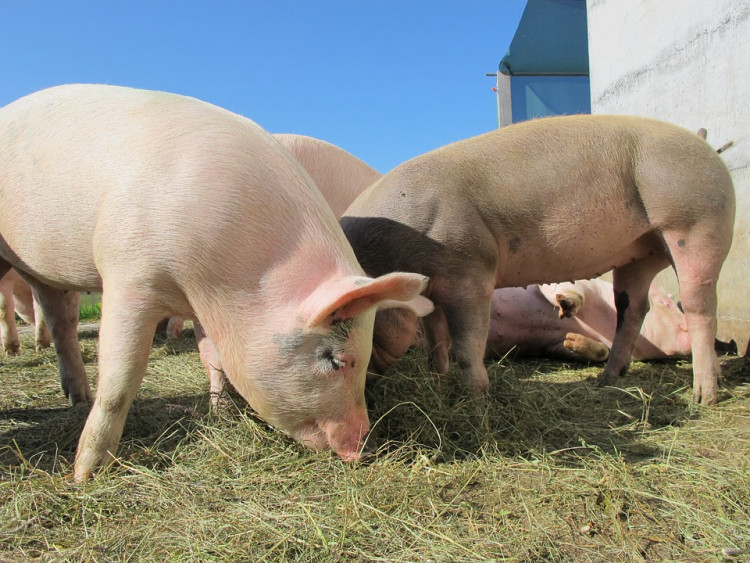On Friday, the agriculture ministry in China confirmed the first case of African swine fever in Beijing and the disease continues spreading throughout the country. In the statement of the ministry, the disease was reportedly found on two farms in the Fangshan District in southwest Beijing, wherein 86 pigs have died out of more than 17,000 pigs.
The farms were sealed off by the special task force to culled and disinfect them, while pork products and live pigs were not allowed to leave the area. Meanwhile, senior ministry officials noted that 600,000 pigs had been culled after African swine fever was first recorded in August in the biggest consumer and producer of pork in the world. It surfaced in northeastern Liaoning province, but the disease now spread to 20 provinces with 73 recorded cases, the South China Morning Post reported.
Feng Zhongwu, the deputy director of the Bureau of husbandry and veterinary medicine, said the situation now is "very severe." The deputy added that due to the longer period of incubation and difficulty of detection, there is a high chance that the African swine fever might be reintroduced.
Also, the ministry blamed the spread of African swine fever to the need to transport pigs long distances for sale, the backward farming methods, as well as the lack of hygiene. Earlier in September, the government-controlled media noted the disease was first discovered in five provinces, and the agriculture ministry said the situation was generally under control.
However, African swine fever still spread into pork-producing districts despite efforts to control it, like banning transports of live pigs in affected areas and culling more than half a million livestock. The disease also caused a spike in pork prices across China, fuelling fears of its impact on the largest pork producer in the world.
In August, the UN Food and Agriculture Organisation warned that African swine fever could spread to other Asian countries. Although the disease was not harmful to humans, it can cause deadly hemorrhagic fever in domesticated pigs, and also to wild boar. The disease also has no known vaccine or antidotes; it can only be controlled through culling.
Meanwhile, China issued a new rule on Wednesday to tighten the notification of African swine fever cases, such as incentives for whistle-blowers. Under the new rule, it's not allowed to delay or obstruct new outbreaks, as well as issuing illegal health certificates and false test reports.





